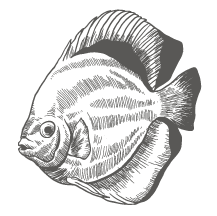Magic Mushrooms, Psilocybin and Mental Health

Heart and nervous system cells are extremely sensitive to a thiamine deficiency. Congestive heart failure and extensive cognitive impairment (“mush brain”) are often the cause of alcoholics requiring long-term hospitalization or nursing home care. Brain fog, or mental fog, is often described as feeling mentally drained and unable to concentrate. Signs of brain fog include reduced cognitive functioning or difficulty with paying attention, keeping focus, multitasking, and memory recall. If you’re concerned about vitamin B1 depletion or know someone experiencing co-occurring wet brain symptoms as a result of drinking alcohol, it’s essential that you get professional help. Reach out today, before chronic conditions develop, and a health care or recovery expert will help guide you in next steps.
Nonstop, Ongoing Brain Fog: Next Steps
- Throughout college, he would start drinking liquor in the morning, planning two-day hangovers into his schedule.
- Nine out of 10 alcoholics (mostly men between 45 and 65 years of age) will eventually develop Korsakoff syndrome, also called Korsakoff psychosis.
- As such, we recommend that the term “wet brain” be avoided in favor of the more accurate “Wernicke-Korsakoff syndrome.”
- Be brave enough to share that you are struggling and to ask for some help.
Long-term alcohol misuse can lead to a number of health problems, including brain damage. Recent neuroimaging studies have revealed that chronic alcoholism can damage the cerebellum, which plays an important role in regulating motor control, attention and language. It can also cause the prefrontal cortex to shrink and degrade, potentially impairing decision-making skills and social behavior. Studies have also found damage in the white matter of the brain, which connects these regions. Vitamin B1 should be given as soon as possible to patients presenting with symptoms of the wet brain. A Vitamin B1 injection will help to address symptoms of confusion, delirium, vision problems, and trouble with muscle coordination.
A Cause for Hope (but Don’t Try This at Home)
- When an alcoholic suffers an acute lack of vitamin B1 too rapidly, the onset of Wernicke encephalopathy may be severe enough to demand emergency medical attention.
- Because the pressures of 21st century living can be intense and relentless, the number 1 skill we must all learn is to become experts at self-care.
- It can also cause the prefrontal cortex to shrink and degrade, potentially impairing decision-making skills and social behavior.
- The truth is two people can have similar drinking patterns and one will develop Wernicke-Korsakoff syndrome and the other won’t.
- In these situations, we can usually forgive ourselves for our temporary brain-lock and move on.
The 96 participants received either three saline solution injections a week or three ketamine injections. Compared to a control group, participants in the ketamine group were 2.5 times more likely to refrain from drinking through the end of the trial. Caffeine directly impacts dopamine levels and other neurotransmitters contributing to your overall brain functioning, sleep, appetite, and mood. Depending on the severity of brain fog, it can interfere with your work, school, or other daily tasks. Vitamin B1 supplements alone are not enough to ensure the treatment of the wet brain.
“Magic Mushrooms,” Psilocybin and Mental Health

It’s a complex condition with many factors and, like alcohol use disorder, no one chooses it. As such, we recommend that the term “wet brain” be avoided in favor of the more accurate “Wernicke-Korsakoff syndrome.” What about heavy drinkers and those concerned about the physical and mental issues they’re beginning to experience from alcohol consumption? There’s no certainty that an alcoholic will develop Wernicke-Korsakoff syndrome. It is, however, more likely to occur with long-term alcoholics who’ve failed to get treatment for their addiction. How life with Wernicke-Korsakoff syndrome continues depends on how severely someone is affected by the disease and wet brain symptoms.
Start by switching off distracting notifications, put away that second screen and allow your brain the luxury of focusing on just one thing. We have biological limits and there comes a point where working longer hours, sleeping less and squeezing in more simply doesn’t work. Instead, it makes us more mushy-brained, more reactive and more prone to making poor decisions. Mushy brain doesn’t just make us terrible drivers and forgetful fork holders, it can also seriously affect our mood and the way we interact with others. When we are tired, we don’t have the mental energy to take advantage of the glorious abilities of our pre-frontal cortex.

Cognitive Impairment Problems with Korsakoff Psychosis
If left untreated, the damage can progress to Wernicke-Korsakoff syndrome, a potentially life-threatening condition. When a person is in the final stages of a wet brain, they will need 24/7 nursing care. Alcohol is a neurotoxin that shrinks the brain (a phenomenon known as “cerebral atrophy”) and slowly destroys the frontal lobe, cerebellum and limbic system. In many ways, end-stage alcohol dementia resembles end-stage Alzheimer’s disease and requires the same level of intensive medical support.
- Without thiamine, the brain can’t process glucose, robbing the brain of energy (and functioning).
- As soon as you recognize symptoms, you need to get medical attention right away.
- The wernicke-Korsakoff syndrome is actually the occurrence of two syndromes.
- If there were no adverse reactions, the second psilocybin sessions involved higher doses of both drugs and more therapy.
- There’s more to healing than medication.Identify ways to improve your autoimmune care and find out if WellTheory is right for you.
Brain fog is an underrated problem, and many people suffer from it. These weird feelings can affect anyone regardless of age, gender, or lifestyle. This article will explore what brain fog is, the possible causes, and 7 warning signs that you shouldn’t ignore that fuzzy feeling in your head. By Michelle PugleMichelle mush brain Pugle, MA is a freelance writer and reporter focusing on mental health and chronic conditions. As seen in Verywell, Healthline, Psych Central, Everyday Health, and Health.com, among others. Knowing why you’re experiencing brain fog is an important first step in understanding what may help relieve symptoms.
He didn’t have cravings after that, but the second and third sessions sealed the deal, he said. He had his first alcoholic drink at age 12 and attended his first Alcoholics Anonymous meeting by 16. Throughout college, he would start drinking liquor in the morning, planning two-day hangovers into his https://ecosoberhouse.com/ schedule. In 2015, Jon Kostas of New York City signed up as one of the first participants after his mother told him about the trial. NYU Langone Health led the trial, which began recruiting in 2014, with researchers from the University of Alabama at Birmingham and the University of New Mexico.

Sometimes, relieving brain fog is a matter of correcting a nutritional deficiency, switching medications, or improving the quality of your sleep. A 2017 study conducted over 10 years found that people who used brain training exercises reduced the risk of dementia by 29 percent. The more a person uses their brain, the better their mental functions become.
How to Identify What’s Causing Your Brain Fog
The excessive consumption of alcohol can cause a deficiency of thiamine, or vitamin B1, which is an essential vitamin for the proper functioning of the brain and body. Alcoholism interferes with the consumption, absorption, and activation of thiamine in your system. The wernicke-Korsakoff syndrome is actually the occurrence of two syndromes. Wernicke encephalopathy and Korsakoff syndrome are two separate conditions though they commonly occur together because they are both caused by a thiamine deficiency. Wernicke encephalopathy usually occurs first and causes damage to the thalamus and hypothalamus, which are in the lower part of the brain. Amnesia is typically found in people with alcohol use disorder (AUD).



